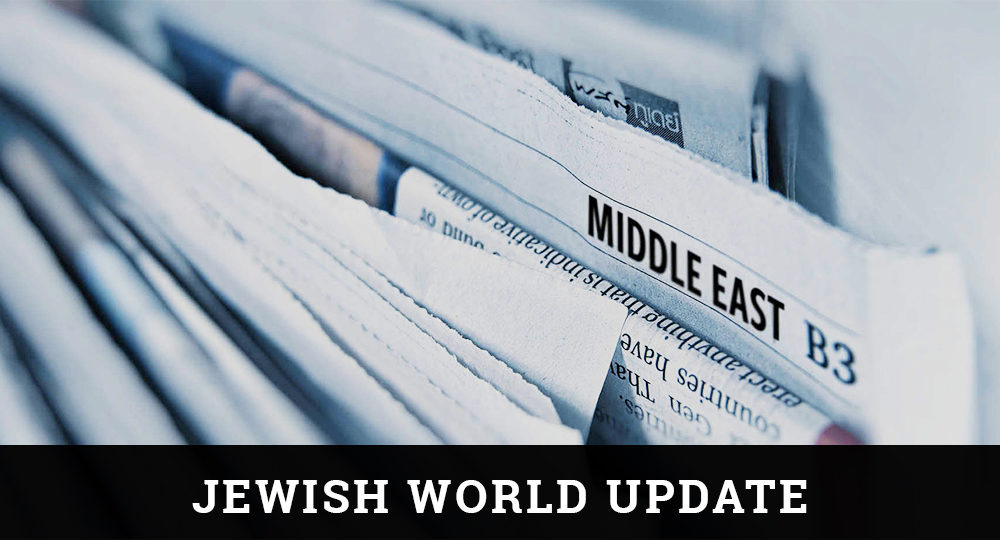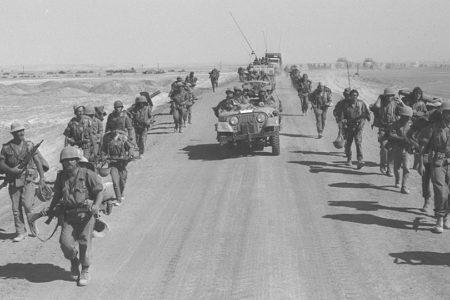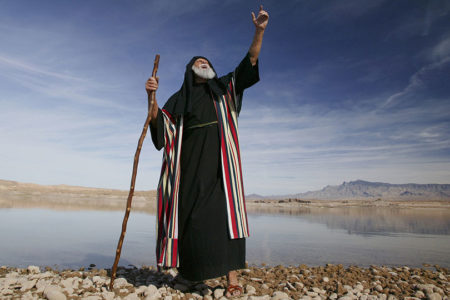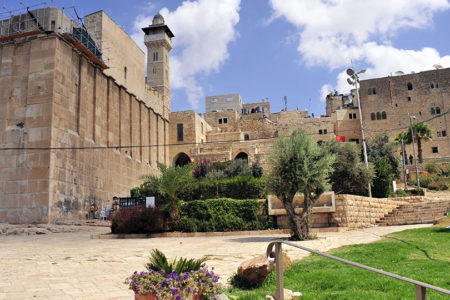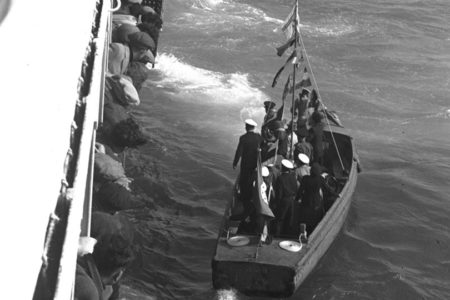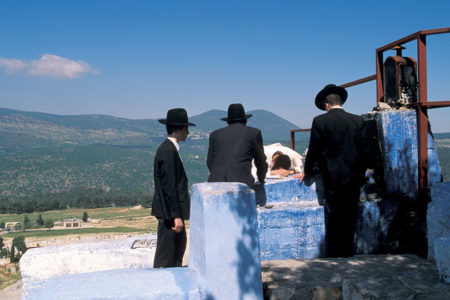Israel in the News Sep/Oct 2013
EU Sanctions Hurt Palestinians
Now even Palestinians are fighting a recent European Union (EU) decision to boycott all Israeli businesses in East Jerusalem and the West Bank. A senior Palestinian Authority (PA) official who spoke on condition of anonymity told Israeli media, “We have a number of officials at the European Union who are trying to reverse the decision.”
The new directive forbids nations in the euro zone from doing business with “Jewish settlers.” Not only will it weaken the Israeli companies, but it will hurt the Palestinian economy because thousands of Palestinian Arabs work for those companies.
A Palestinian employee at a Jewish-owned greenhouse said, “The decision affects everyone, whether Jew or Arab. If they (the EU) take away our livelihood, what kind of peace will then prevail here?”
Israel Today (israeltoday.co.il)
No Mourning on Temple Mount
Jewish people marked the solemn fast of Tisha B’Av in July, commemorating the destruction of the Temple and other Jewish tragedies. However, under threat of Muslim violence, Israeli police barred them and Christians from the Temple Mount, a situation many said proves the Tisha B’Av tragedies have not ended despite Israel’s rebirth.
A few hundred Jewish worshipers ascended the Temple Mount the previous evening, only to be confronted by a hostile mob of Muslims who witnesses said appeared ready to riot before the Jews were evacuated by police.
Israeli Knesset Member Danny Danon said enough is enough. “We are in favor of freedom of religion on the Temple Mount, and that means freedom for all religions,” he told Arutz-7. “That includes Jews. We must take steps to ensure that Jews are not only able to visit the Temple Mount, but are also able to pray there. I see no logic in allowing Muslims to pray there, but not Jews.”
Israel Today (israeltoday.co.il)
Never Again!
The Katif Center, established to maintain the legacy of the destroyed Jewish communities of Gush Katif and northern Samaria, recently marked eight years since the forced displacement of some 10,000 Jewish people. The Center showed a documentary featuring 800 interviews with former residents. Gush Katif, in the Gaza Strip, was handed over to Palestinians (and subsequently to Hamas) in August 2005.
Speaking at the event, Jerusalem Mayor Nir Barkat called on the nation’s leadership to realize there “must never be a second disengagement.” Barkat noted that the Gush Katif settlements, much maligned on the international stage, had “been established by governments from across the political spectrum…[in order to] meet a very real need to settle the land and establish security in the south.”
The decision to uproot Gush Katif under American and Western pressure “was a national trauma,” he said. “Anyone who was there was scarred for life.”
Israel Today (israeltoday.co.il)
Arab Christians Enter Politics
Tired of being lumped in with Arabs who dislike Israel, Arab Christians in northern Israel have launched a new political party. Sons of the New Covenant (Hebrew, Brit Hahadashah) hopes to take part in future Knesset elections.
In an interview with the Israeli daily Israel Hayom, party founder Bishara Shlayan said difficulties in helping his son and nephew join the Israeli army prompted him and other like-minded Christians to establish a forum to encourage Christians to enlist in the Israel Defense Forces (IDF).
The forum significantly boosted the number of young Christians joining the IDF and resulted in the Israeli army appointing a dedicated coordinator for the Arab-Christian sector.
But Shlayan knew they had to go a step further. “We saw that we have to establish a political party, so we advertised in local Arab newspapers and the initiative took off,[attracting] Christians who recognize that the Land of Israel belongs to the Jews,” Shlayan said.
He lamented that for 65 years, the Christian community has allowed anti-Israel Arab parties to represent it in the Knesset, noting that these parties are working for a Muslim agenda that holds no bene-fit for Christians.
Israel Today (israeltoday.co.il)
Israeli College in Tanzania
An Israeli college will soon be established in the African nation of Tanzania. The Atid Network, the largest privately owned educational network in Israel, has signed an agreement with the Tanzanian government to establish the college in Dar es Salaam, the former capital and Tanzania’s largest city.
It’s expected to open with 700 students and expand within two years to approximately 4,000. Typical courses will last six months and give students a trade skill and a certificate of graduation from the Tanzanian Ministry of Education.
Atid Network currently operates smaller colleges and training centers in other parts of Africa, including Nigeria.
Israel Today (israeltoday.co.il)
Moving to Israel from the USA
El Al flight LY3004 from New York landed in July at Ben Gurion Airport with 231 new Israeli citizens aboard, including a record 106 children. More than 1,000 children are expected to immigrate in 2013 through Nefesh B’Nefesh. This is a 20 percent increase over last year.
Former Israel Defense Forces captive Gilad Shalit was on the flight as a show of support and appreciation for the thousands of North Americans fulfilling their dream to return to Israel and contribute to the Jewish state.
Arutz-7 (IsraelNationalNews.com)
Rambam’s Underground Hospital
The Rambam Health Care Campus in Haifa has done something no other hospital has done. It has built the world’s largest, fortified, underground emergency facility that is a 1,500-car parking garage during peace and a 2,000-bed hospital during war.
The three-story underground structure covers 60,000 square meters, about 646,000 square feet. It is fully fortified against conventional, chemical, and biological warfare, with cement walls and ceilings 40 cm (15.75 inches) thick and tens of thousands of ventilation and air filtration units that are 98 percent effective in filtering out biological and chemical agents.
The initiative to build the structure came after the Second Lebanon War in 2006, when 45 missiles landed near the hospital. “For 33 days, while the battle raged and we were taking care of all civilian and army casualties, the hospital itself was also under attack. This was not something that we could have ever anticipate—that an institution which saves lives.could be vulnerable to the loss of life due to deadly missile attacks,” said Prof. Rafi Beyar, director and CEO of Rambam.
If a war is suddenly declared, the parking lot will transform within 72 hours into a fully sealed off, self-sufficient emergency hospital, able to store enough breathable oxygen, drinking water, and medical-gas supplies for up to three days.
The cars will be removed immediately. Then the floors and walls will be scrubbed thoroughly and the hospital equipment brought in, including the beds, hundreds of portable toilets and showers, medical-gas supplies, air conditioning systems, and multiple other items from an off-campus hangar—all of which will be installed in predetermined places.
“The threat of war has not disappeared and has unfortunately grown stronger,” said Beyar. “As the main referral hospital for over 2 million people in the north of Israel, we are determined to have the capabilities of providing acute and chronic hospital care under fire to all those who need it.”
Rambam is the tertiary referral center for 12 district hospitals, the Israel Defense Forces Northern Command, the U.S. Navy’s Sixth Fleet, and the UN Peacekeeping Forces posted in the region. It is the exclusive provider in northern Israel of comprehensive treatment in such disciplines as neurosurgery, oncology, and major trauma.
Archaeologists Dig Up King David’s Palace
An excavation has unearthed a palace of King David’s. “This is indisputable proof of the existence of a central authority in Judah during the time of King David,” said researchers Prof. Yossi Garfinkel and Saar Ganor. Until now, no palaces were clearly attributable to the early 10th century B.C. The site, Khirbet Qeiyafa, was probably destroyed in a battle against the Philistines in 980 B.C.
Recent excavations indicate a well planned, fortified city in Judah. Khirbet Qeiyafa is located 30 km (18 miles) southwest of Jerusalem on a hill that borders the Elah Valley—a strategic location in the biblical kingdom of Judah and where the battle between David and Goliath took place.
Such urban planning has not been found at any Canaanite or Philistine city, nor in the northern kingdom of Israel. Khirbet Qeiyafa is the earliest known example of this city plan and indicates this pattern had already been developed by the time of King David.
The city came to a sudden end, as indicated by hundreds of pottery vessels, stone utensils and metal objects left on the floors of the houses. Rich assemblages of pottery, stone tools, and metal objects were found, as well as many cultic objects, scarabs, seals and the most famous Khirbet Qeiyafa ostracon, an inscription written with ink on a pottery sherd.
The Jerusalem Post (jpost.com)
